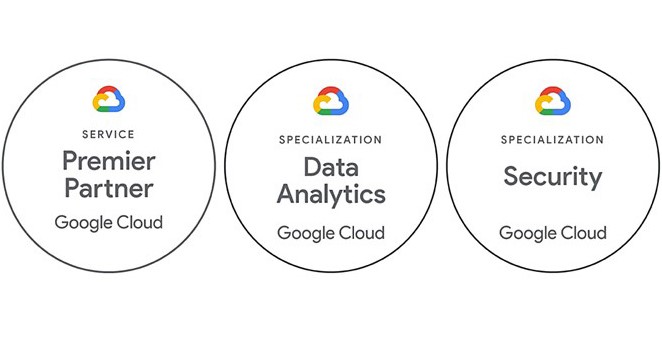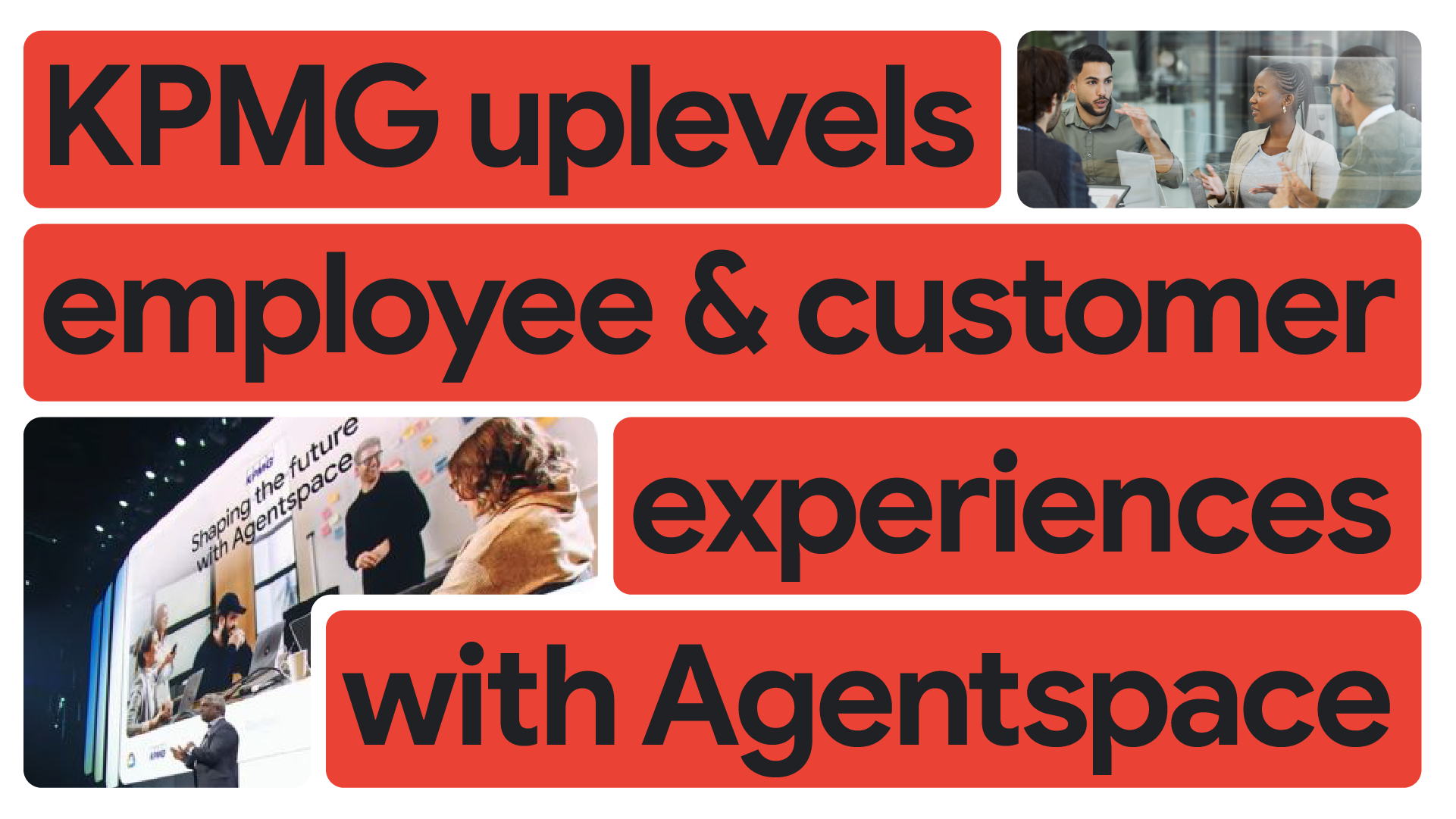Transcript
Featured in this video: Todd Lohr, National Managing Principal, Clients & Markets
Executive summary: KPMG, a global organization of professional services firms, expanded its strategic AI collaboration with Google Cloud, becoming a key deployment partner for Google Agentspace to help clients build, scale, and effectively manage AI agents. As part of the move, KPMG also adopted Google Agentspace internally to enhance employee experiences while also building its own capabilities to help clients with their transformation journeys. Agentspace, a platform designed to connect employees with intelligent AI agents, allows KPMG employees to utilize Google-quality multimodal search and sophisticated pre-built or custom agents in their daily work. Agentspace creates new opportunities to build on the thousands of AI agents KPMG professionals have already created for specific customers, business models, and workflows, further advancing its ability to deliver the right AI and agentic capabilities to drive lasting value. In addition, Agentspace will play a key role in developing a platform of specialized legal agents that provide KPMG Law US professionals with AI-assisted contract review, research, and legal automation to simplify document analysis, compliance checks and contract lifecycle management.
Challenge: With a 130-year legacy in guiding clients through their toughest business challenges, KPMG is actively investing in capabilities and solutions that lower the barrier of entry to AI. With organizations now focusing on AI agents, KPMG was looking to support industry adoption and effectively enable agentic workflows at the enterprise level.
Solution: KPMG expanded its strategic AI collaboration with Google Cloud, becoming a key deployment partner for Google Agentspace to help clients build, scale, and effectively manage AI agents. The move included adopting Google Agentspace internally to help enhance employee experiences and, ultimately, learn from its own implementation to help clients with their transformation journeys. Agentspace, which securely connects enterprise apps, enables KPMG to provide its employees with access to Google-quality multimodal search and sophisticated pre-built and custom AI agents into their daily work while also enhancing its own AI platforms.
Results: KPMG’s adoption of Agentspace is helping to transform business processes with AI — both internally and for its clients — providing the right AI and agentic capabilities to drive lasting value. Agentspace opens up new opportunities to build on the thousands of AI agents KPMG professionals have already created across industries for specific customers, business models, and workflows. In addition, Agentspace will play a key role in developing a platform of specialized legal agents that provide KPMG Law US professionals with AI-assisted contract review, research, and legal automation to simplify document analysis, compliance checks and contract lifecycle management.
Key takeaways and highlights from our interview with Todd Lohr, National Managing Principal, Clients & Markets
→ “Every organization is looking to adopt agents. I think that the real differentiator is going to be who can organize and orchestrate agentic workflows at the enterprise level. Our entire workforce will have access and be using Agentspace because we see the opportunity that [it] brings to orchestrate work at the enterprise layer across multiple platforms and be that place to integrate those experiences and drive a tremendous amount of value.”
→ “We’re looking at how we leverage agents and Agentspace to drive employee experience. From the onboarding performance management cycles, think all of the interactions you have day to day from a workforce perspective. An enterprise should be thinking about both ways of really providing sophisticated agents to the workforce on large scale repeatable things but also enabling the workforce to work with an agent as their coworker.
→ “I’m also really excited about what it means to how we provide services to our clients as well. KPMG Law represents kind of a new market entry for us, providing legal services. That is a good example of where we’re going to a very AI-first mindset to enter a new market, think about the work differently, and provide differentiated services.”
Google Cloud products used: Google Agentspace
Learn more:
→ KPMG Expands AI Alliance with Google Cloud to Support Industry Adoption of Agentspace and Deliver Multi-Agent AI Solutions https://kpmg.com/us/en/media/news/kpmg-google-cloud-alliance-expansion-agentspace-adoption.html
→ KPMG Invests $100M in Google Cloud Alliance to Accelerate Enterprise Adoption of AI for Clients https://kpmg.com/us/en/media/news/kpmg-google-cloud-partnership-expansion-2024.html
→ Scale enterprise search and agent adoption with Google Agentspace https://cloud.google.com/blog/products/ai-machine-learning/google-agentspace-enables-the-agent-driven-enterprise
→ Learn more about Google Agentspace https://cloud.google.com/products/agentspace?hl=en
















